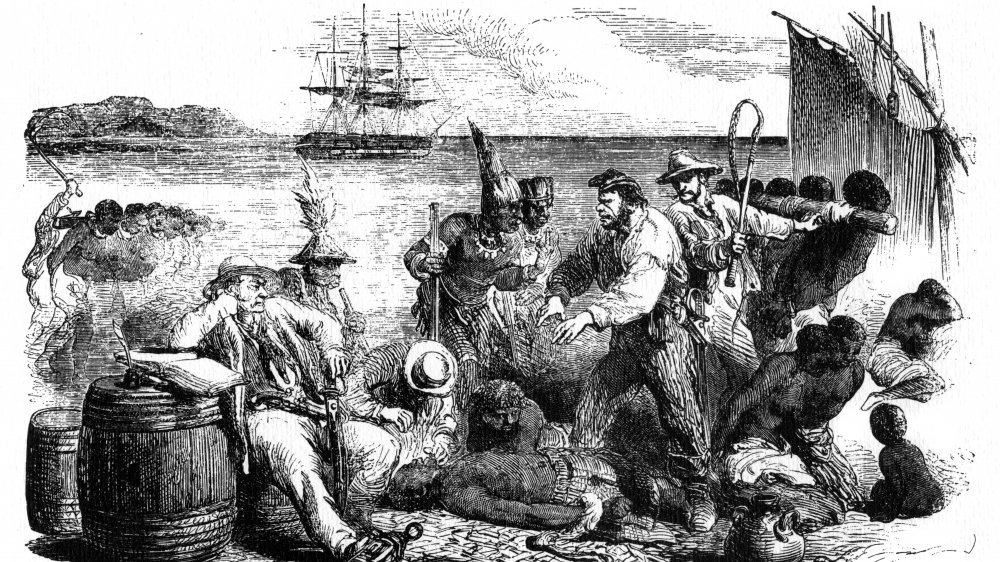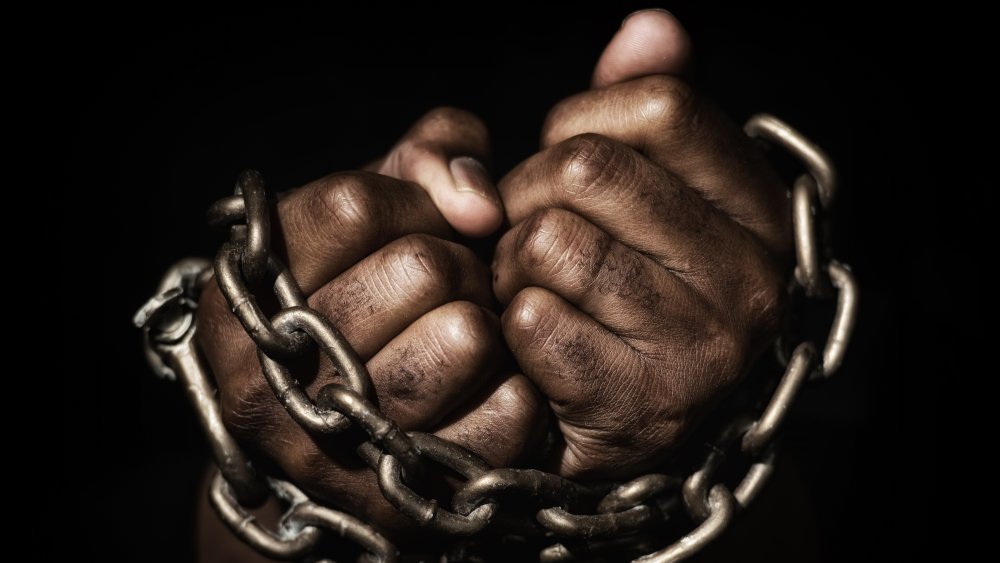The Untold Truth Of The Clotilda, America's Last Slave Ship
America's tragic history of racism is rooted at least in part in the nation's sordid history of slavery. There were steps from time to time to abolish what some called the "peculiar institution." On January 1, 1808, it became illegal to import slaves from Africa or the West Indies, as NPR reports. It wasn't altogether altruistic, since banning the import of slaves meant that buying and selling human beings within the country itself didn't face overseas competition. Making something illegal doesn't mean it never happens, and in response to the ban, slaves became the goods of smugglers — Jim Bowie, one of the heroes of the Alamo, made a tidy sum dealing in smuggled slaves, according to Thoughtco — even to the point of wagering. Yes, as if the thought of human beings as objects of commerce wasn't enough, there was also the story of a wager by an Alabama planter named Timothy Meaher.
As CNN tells it, in 1860, Meaher bet that he could sneak slaves past Federal authorities and into the country. He bought a two-masted schooner, the Clotilda, and paid a captain, William Foster, to sail from North America to West Africa. There Foster was to acquire 110 slaves from what is now Benin, return to the United States and, under cover of darkness, sail up the Spanish river and offload the slaves in what is believed to be the last slave shipment to this country. Foster was then to burn the boat. Mission accomplished.
Importing slaves became illegal in 1808. To some plantation owners, it didn't matter
In 2019, the remains of the Clotilda were discovered in Alabama at the bottom of the Mobile River. The finding has incredible historical significance; "This is the only one so far that has been found which came directly from Africa to the Americas with people on board," says History, quoting scholar and author Silviane A. Diouf.
A small community north of Mobile is called Africatown, established and settled after the Civil War by survivors of the Clotilda slave shipment. Their descendants live there today, says Smithsonian. "So many people along the way didn't think that happened because we didn't have proof," one of those descendants, Lorna Gail Woods, told the magazine. "By this ship being found we have the proof that we need to say this is the ship that they were on and their spirits are in this ship. No matter what you take away from us now, this is proof for the people who lived and died."

